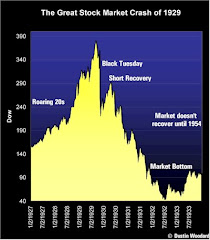The Globe and Mail pension specialist, Janet McFarland, covered a report released from the BC government. The report shares their vision for the future of pensions in Canada.
Middle-income retirees face pinch
BC Pensions Report
This ia an excellent article on an interesting topic.
The CPP as it stands is designed to provide 25% of income up to the YMPE limit of $47,200. So any earners over the limit have topped out on CPP. This year the earnings will be $11,800.
2010 CPP contribution numbers
The BC report points out that CPP and OAS programs combined are designed to provide 40% of the YMPE income level. This is seen as a suitable income level for Canadian taxpayers to have for retirement. However, the BC Finance Minister and the rest of the MLA's in BC feel it is necessary to have a 70% replacement pension for themselves. They like to include the rest of the public sector employees at 70% as well. All with no limits or YMPE.
One rule for taxpayers and another for public servants sucking up taxpayer money.
Gold-plated Pensions for MLS'a in BC
This compares with public sector pensions that earn 70% of final salary. The income average at the federal level is $75,000. (the last salary survey was based on 2002/3 numbers, the average annual increase has been about 7% since then.) So the pensions here are at about $52,500 including CPP.
Treasury Board of Canada Treasury Board Compensation Report
Canada's average wage is at around $40,000 per year. So most Canadians are covered under the CPP plan. As the article points out there is a shortfall for the group between $30K and $100K. This group pays about 42% of disposable income into taxes. This does not leave very much to save into retirement plans.
The unions in Canada envision a program to boost CPP to 50% up to $100k. In the UK they have begun to implement this type of a program. They call it the NEST plan. All employees and employers will be required to contribute into the supplementary retirement plan.
UK-wide pension fund to be called NEST
Lets move the public sector and private sector to the same plan, level the playing field so to speak and most Canadians will live comfortably in retirement




No comments:
Post a Comment